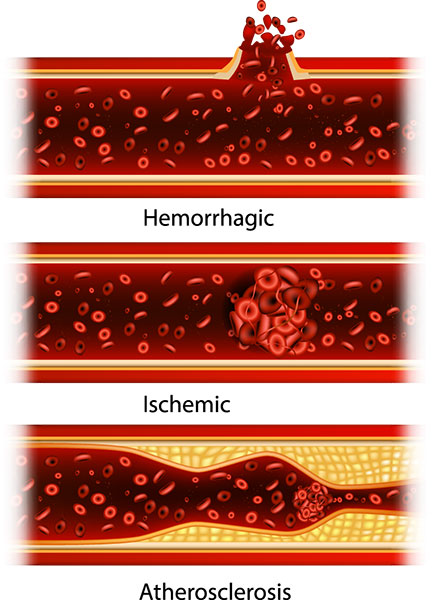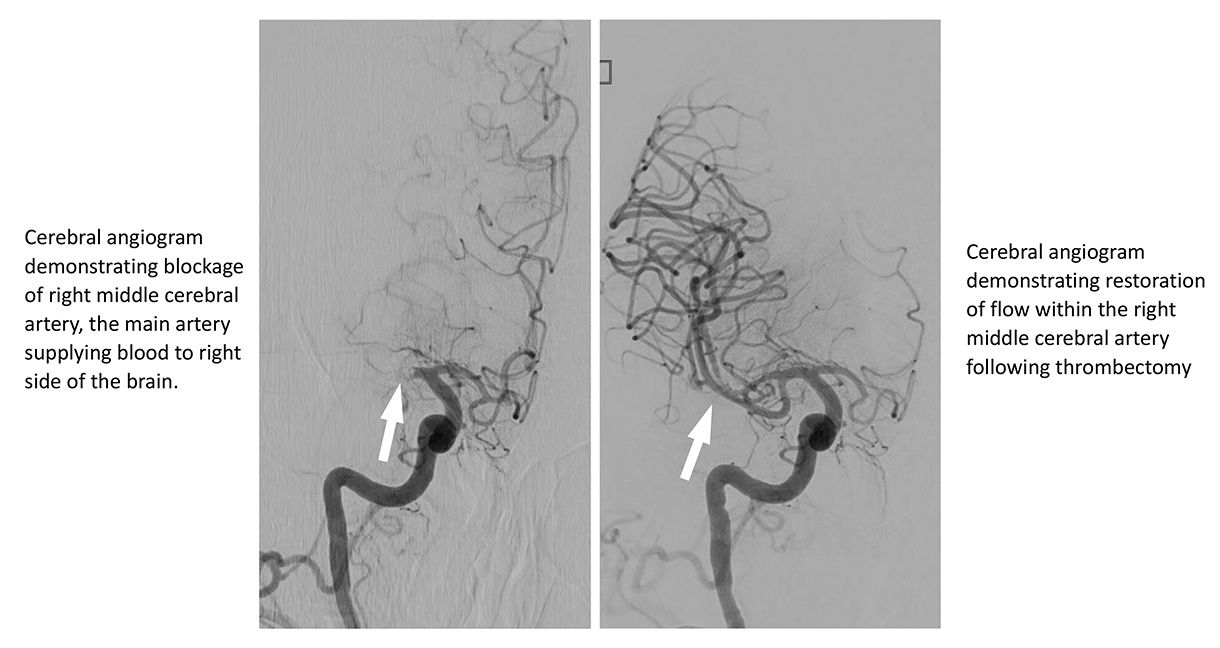Stroke
A stroke or “brain attack" occurs due to injury of a blood vessel in the brain.

What is a stroke?
Arteries are the most important blood vessels for normal brain function and are responsible for carrying oxygen and other nutrients to healthy tissue. When that blood flow is interrupted, brain tissue becomes damaged and can even die.
There are two types of strokes: ischemic and hemorrhagic. Ischemic stroke is the most common type and occurs due to a blockage within a brain artery. This can happen due to a blood clot traveling from another part of the body, such as the heart or the carotid arteries in the neck (called an embolus), or it may result from plaque buildup within the arteries of the brain (called atherosclerosis). This can result in sudden numbness or weakness on one side of the body, difficulty understanding or producing speech, and loss of vision.
There are many steps one can take to decrease the chances of having a stroke.This includes stopping smoking, reducing alcohol intake, eating a well-balanced diet, getting regular exercise, and having a yearly evaluation with your primary care physician to ensure your blood sugar, cholesterol, and blood pressure are within a satisfactory range.
Depending on your personal medical history, additional screening testing, such as a carotid ultrasound, may be obtained.
Request a consultation today:
One of our expert Interventional Radiologists will personally review your case with you, and discuss whether an intervention is the right option for you.
Patients, please note that services may require a referral from your primary care or another provider, but we can help facilitate that process if treatment is deemed necessary. Telehealth consultations may be available depending on the type of procedure required.


